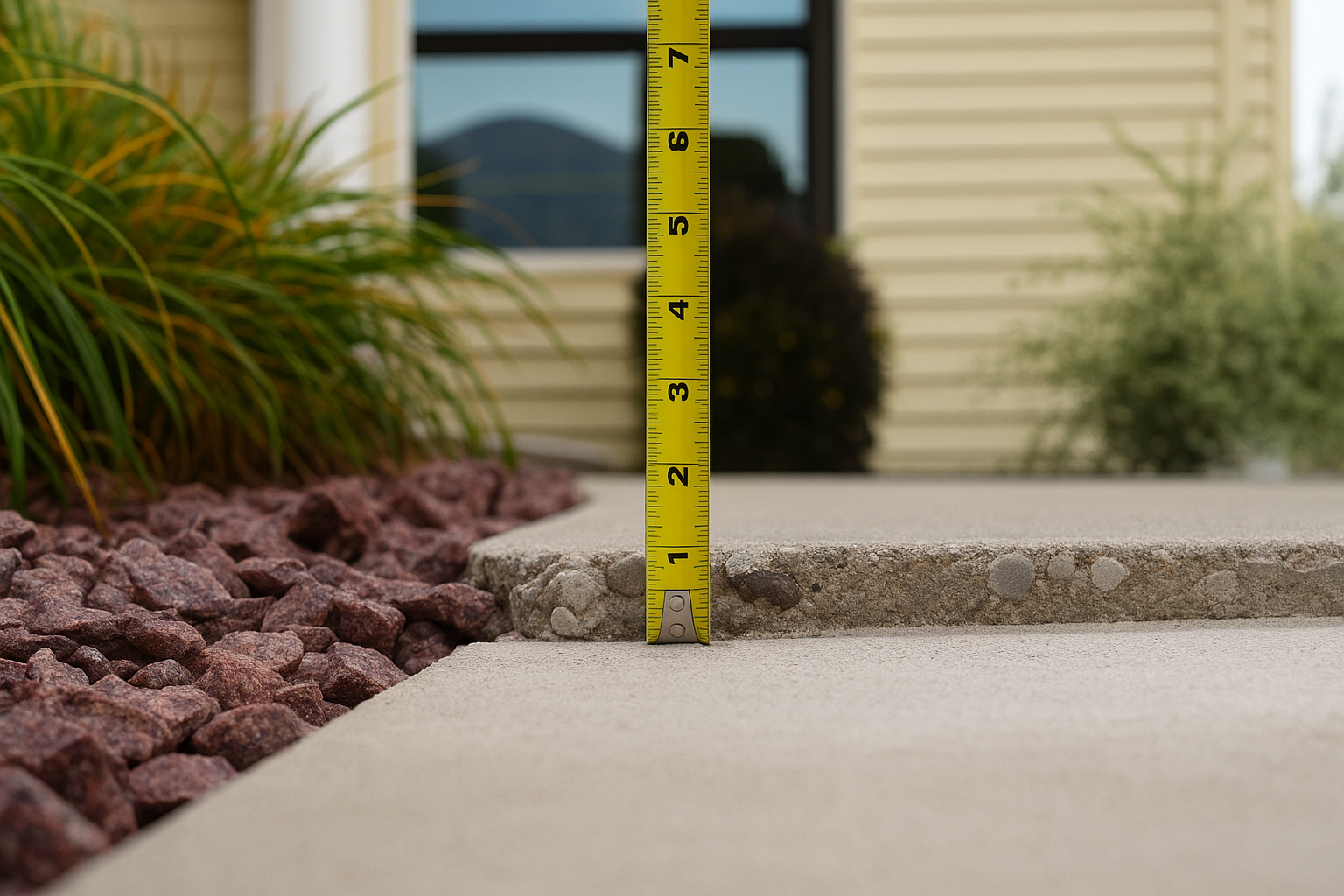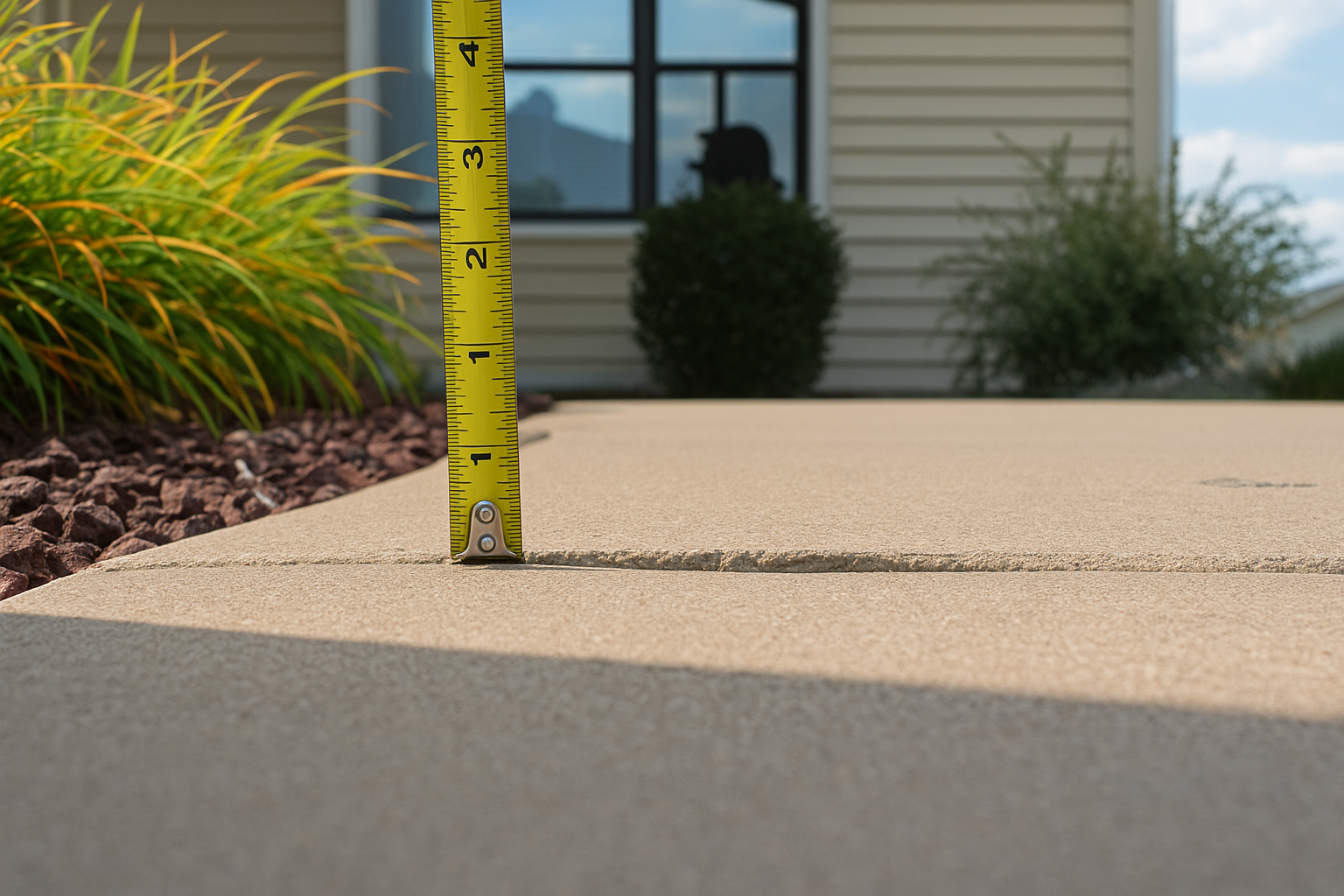
Introduction
Houston homeowners face a unique challenge that many other cities don't experience to the same degree: uneven concrete Houston properties caused by the region's distinctive soil composition. From sunken driveways in Memorial to cracked patios in The Woodlands, the underlying cause is almost always the same—Houston's expansive clay soil. Understanding why this happens and how modern polyurethane injection Houston techniques can provide lasting solutions is crucial for protecting your property investment and ensuring long-term stability.
Houston's Expansive Clay Soil: The Root of the Problem
What Makes Houston Soil Unique
Houston sits atop what geologists classify as "expansive clay soil"—a geological formation that contains high concentrations of clay minerals, particularly montmorillonite. This isn't ordinary clay; it's a highly reactive soil type that can expand up to 10 times its dry volume when it absorbs water and shrink dramatically during dry periods.
The Greater Houston area's soil composition includes several problematic layers:
- Beaumont Clay: A dense, highly plastic clay formation
- Lissie Formation: Mixed clay and sandy deposits
- Willis Formation: Clay-rich sediments with variable density
The Seasonal Moisture Cycle
Houston's climate intensifies these soil challenges through dramatic seasonal moisture shifts. The region experiences:
- Wet seasons with intense rainfall and high humidity
- Drought periods that can last for months
- Flash flooding that rapidly saturates clay soils
- Temperature swings that affect soil moisture retention
How Soil Movement Creates Uneven Concrete
The Expansion-Contraction Cycle
When Houston's clay soil absorbs water, it swells upward, creating significant pressure against concrete slabs. During dry periods, the soil contracts and shrinks, leaving voids and gaps beneath the concrete. This constant movement creates what engineers call "differential settlement"—where different sections of concrete settle at different rates.
The process typically follows this pattern:
- Initial Installation: Concrete is poured over compacted soil
- Soil Saturation: Heavy rains cause clay expansion and upward pressure
- Drying Phase: Soil contracts, creating voids under concrete sections
- Settling Begins: Concrete sinks into newly formed voids
- Visible Problems: Cracks, uneven surfaces, and trip hazards appear
Common Areas Affected by Houston Soil Problems
Residential concrete repair needs in Houston typically involve these areas:
- Driveways: Heavy vehicle loads accelerate settling in weak soil support
- Sidewalks and walkways: Long, narrow slabs are particularly vulnerable to differential movement
- Patio slabs: Large, unsupported areas develop multiple settlement points
- Pool decks: Constant moisture from splashing compounds soil movement issues
- Foundation slabs: The most critical area requiring immediate attention
Why Traditional Repair Methods Fall Short
The Limitations of Conventional Solutions
Many homeowners attempt to address Houston soil concrete problems with temporary fixes:
- Crack filling: Only treats symptoms, not the underlying cause
- Mudjacking: Adds significant weight that can worsen soil problems
- Concrete replacement: Extremely expensive and doesn't address soil issues
- Surface patching: Provides only cosmetic improvement
These approaches fail because they don't address the root cause: the void space beneath the concrete and the ongoing soil movement that created the problem.
Polyurethane Foam Lifting: The Modern Solution
How Polyurethane Injection Works
Foam concrete leveling Houston technology uses advanced polyurethane foam that's specifically engineered for soil stabilization and concrete lifting. The process involves:
- Precise Injection Points: Small holes are drilled through the concrete at strategic locations
- Foam Injection: High-density polyurethane foam is injected beneath the slab
- Expansion and Lifting: The foam expands in controlled amounts, lifting the concrete back to level
- Void Filling: All empty spaces beneath the slab are completely filled
- Immediate Stability: The foam cures within minutes, providing instant support
Why Polyurethane Outperforms Other Methods
Modern polyurethane injection Houston techniques offer several advantages over traditional repair methods:
- Lightweight: Adds minimal load to already compromised soil
- Waterproof: Won't degrade due to Houston's moisture cycles
- Permanent: Maintains structural integrity for decades
- Precise: Can lift concrete to exact specifications
- Fast: Projects typically completed in hours, not days
- Cost-effective: Fraction of the cost of concrete replacement

Before: Uneven concrete caused by Houston's expansive clay soil

After: Level, stable concrete restored with polyurethane foam injection
Long-Term Benefits for Houston Properties
Protecting Your Investment
Professional foam concrete leveling Houston services provide multiple long-term benefits:
- Increased Property Value: Level, attractive concrete enhances curb appeal
- Safety Improvement: Eliminates trip hazards and uneven surfaces
- Prevented Water Damage: Proper drainage prevents foundation issues
- Reduced Liability: Safe walkways and driveways protect against accidents
- Energy Efficiency: Level foundation slabs improve structural integrity
Maintenance and Prevention
While polyurethane injection Houston provides excellent long-term stability, homeowners can take additional steps to minimize future soil-related issues:
- Proper Drainage: Ensure water flows away from concrete surfaces
- Landscaping Management: Keep large trees at appropriate distances from slabs
- Regular Inspections: Monitor for early signs of settling or cracking
- Moisture Control: Maintain consistent soil moisture levels when possible
When to Call Professional Concrete Leveling Specialists
If you notice any of these warning signs on your Houston property, it's time to consider professional residential concrete repair:
- Visible height differences between concrete sections
- Cracks that appear along slab joints
- Trip hazards where concrete meets walkways
- Water pooling in areas that previously drained properly
- Gaps appearing between concrete and adjacent structures
- Doors or windows that stick due to foundation movement
Early intervention with professional foam concrete leveling Houston services can prevent minor issues from becoming major structural problems requiring complete concrete replacement.
Ready to Fix Your Uneven Concrete?
Contact SafeLift – North today for your free consultation. Our polyurethane foam injection experts understand Houston's unique soil challenges and provide lasting solutions backed by our 5-year warranty.
Get Your Free Quote